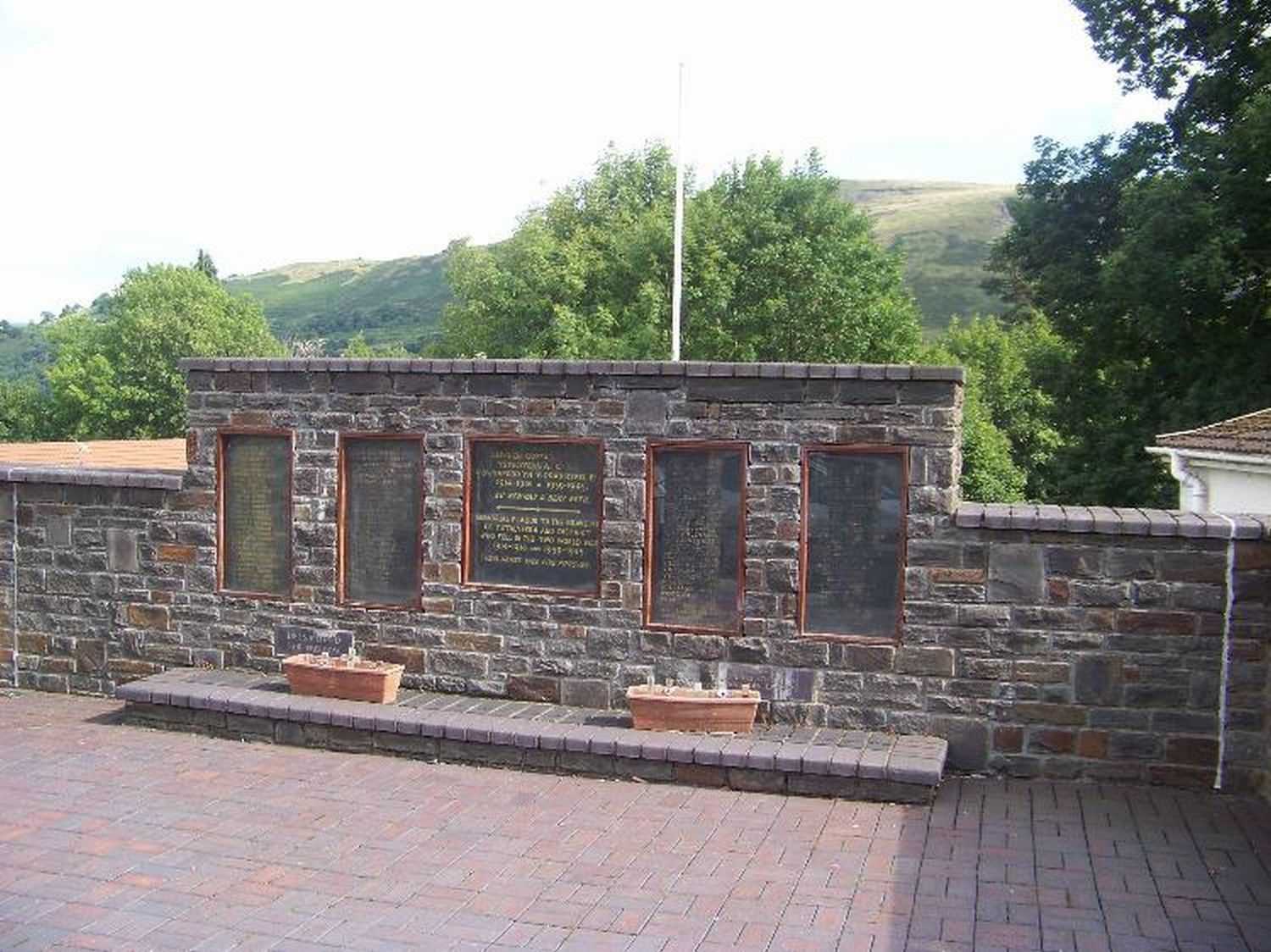Robert Marsh
This is the memorial page for Robert Marsh, native of Ystalyfera, killed during the Second World War.
The information on Robert Marsh comes principally from the Commonwealth War Graves Commission, from the Labour Voice newspaper, and the Parish Burial Register (courtesy of the Swansea Archives).
| Name | (William George) Robert Marsh |
| Date of Death | 13th December 1939 |
| Place of Death | Battle of the River Plate |
| Age at Death | 21 |
| Unit and Regiment | Royal Marines; H.M.S. Exeter. |
| Rank | Corporal |
| Service Number | PLY/X 1361 |
| Additional Information | Son of William Andrew and Jessie Donald Marsh of Ystalyfera, Glamorgan. (Minyfford) |
| Memorial | Plymouth Naval Memorial, Devon; Panel 35, Column 2. |
| Roll of Honour | Book = Ystalyfera County School THE FIRST 50 YEARS |
| Local Memorials | Ystalyfera War Memorial Brass Plaque - English Congregational Church, Ystalyfera (Demolished 2005) - Plaque now housed in the Royal British Legion, Ystalyfera. |
| Family Details | |
| Known Brothers | |
| Known Sisters |
From the Labour Voice newspaper, 23rd December 1939:-
KILLED IN “GRAF SPEE” BATTLE
Among the men killed in the sea battle between H.M.S.Exeter and other ships and “Graf Spee” we regret to learn, is Corporal William George Robert Marsh, eldest son of Mr. William Andrew Marsh and the late Mrs. Marsh, Minyffordd, Ystalyfera.
Corporal Marsh joined the Royal Marines shortly after leaving the Ystalyfera County School and for the last three years was stationed in the West Indies, during which period he was promoted to the rank of corporal.
It is sad to note that only last week he sent a Christmas card to his father, brother and sisters.
His brother Mr. Ernest Marsh is serving with the Royal Artillery in France. The deep sympathy of the neighbourhood goes out to the family in their tragic loss.
BABY SCALDED: In addition to the sad news of their son’s death in the battle of the River Plate, Mr. and Mrs. W. A. Marsh, Minyffordd, have been concerned in a serious accident at their home this week. One of the younger children, a baby of 3 years old, was scalded severely by the over-turning of a kettle of boiling water. The little one was immediately rushed to hospital where he lies in a precarious condition.
From the Labour Voice newspaper, 30th December 1939:-
YSTALYFERA SCOUT GROUP FORMER MEMBER DIES ON ACTIVE SERVICE
The group has learned with deep regret that a former member of the troop has been “called to higher service” though he died while in service for his country.
Robert Marsh joined the Ystalyfera Troop in 1934 and left to join the Marines in 1936. During that period, the troop found a willing and sincere member. His cheerfulness and unselfishness was an example, of which the troop was proud. The keenness of his ambitions showed in his thoroughness of which he completed his Scout work, when, after being a patrol second, was finally appointed patrol leader of the Sift Patrol. This position was held until he joined the Royal Marines at deal and where he was connected with a Rover Crew. While on furlough prior to joining the H.M.S. Exeter, Bobbie still attended troop, so keen was his enthusiasm for scouting.
The willing scout soon showed his abilities and finally he was made corporal and then while in pursuit of duty was killed in action. To the Scouters and fellow Scouts who worked and camped with Bobbie Marsh, he will not be forgotten and they feel proud that they have been fellow Scouts.
“Skip”.
REF: 13 December 1939 BATTLE of the RIVER PLATE
The German pocket battleship Admiral Graf Spee intercepted what was thought to be a small convoy of merchant ships 150 miles off the River Plate estuary. The convoy turned out to be three British cruisers of Commodore Sir Henry Harwood's squadron. Consisting of the light cruisers HMS Ajax (flagship of Commodore Sir Henry Harwood, RN, Capt. C.H.L. Woodhouse, RN in command), HMNZS Achilles (Capt. W.E. Parry, RN) and the heavy cruiser HMS Exeter (Capt. F.S. Bell, RN). They initally identifed the Graf Spee's smoke as a merchant ship and HMS Exeter was detached to take a message to her, but soon the mistake was realised. With the British squadron now split (as planned before the battle) action commenced with the Admiral Graf Spee opening fire at 0615 hours. The subsequent battle saw the cruiser HMS Exeter badly damaged with all her guns put out of action but still seaworthy, she suffered 61 killed and 23 wounded and was forced to make for the Falkland Islands to carry out repairs. HMS Ajax and HMS Achilles were both damaged and suffered casualties, HMS Ajax 7 dead and wounded and HMS Achilles 4 dead. They both shadowed the Admiral Graf Spee into Uruguay territorial waters where she entered the port of Montevideo. The Admiral Graf Spee suffered 36 dead and 60 wounded, hit by seventeen 6 inch shells and two eight inch shells, with water purification and desalination plant destroyed and kitchens wrecked she was allowed just 72 hours to make good her the damage that threatened her sea worthness she was unable to do so. On the 17th December she left Montevideo with a skeleton crew, anchored just outside the 3mile limit and after the crew left her she was blown up and scuttled to prevent her falling into British hands. Her captain later shot himself.

